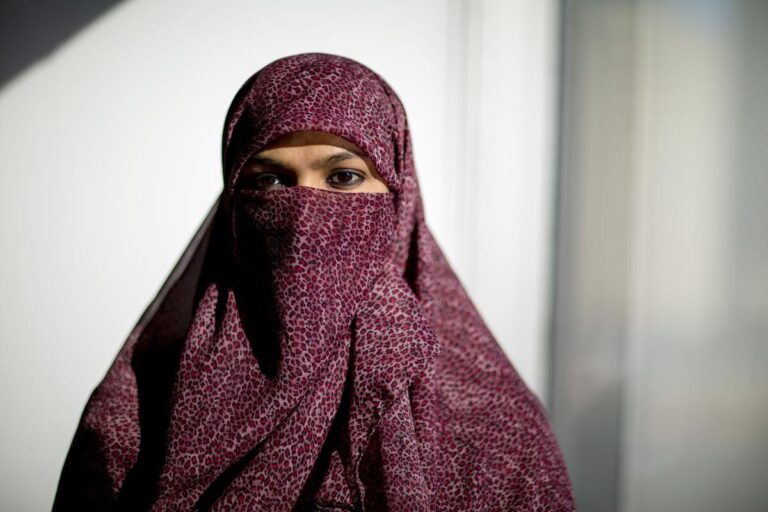Wearing hijab in the town of Axum in Ethiopia’s Tigray region has become something of an explosive subject eliciting fierce reactions across the religious divide.
Niqab is the full face veil worn by Muslim women in public.
The controversy came to a head last month when about 30 students at a government-run school in Axum protested after they were barred from classes for wearing headscarves.
There was similar controversy in the capital Addis Ababa where female students wearing veils in the Muslim tradition were stopped from attending classes.
The Ethiopian Islamic Affairs Supreme Council Thursday said in a statement that “no resolution has been reached” regarding the case of Muslim students in Axum.
The council said Muslim students have been prevented from attending classes for more than a month due to their religious dress code.
It was even alleged that some protesting students and their families have been detained.
The Supreme Council noted that it has been holding talks with the Tigray Regional Islamic Affairs Supreme Council but noted that no progress has been made to resolve the difference.
Muslim students in Axum town, located in the Central Zone of the Tigray region, have been protesting the hijab ban that they say violates their constitutional rights to education and religious freedom.
Members of the Muslim community say some students have been prevented from registering for the national exams because they were not allowed to enter the school premises wearing the burqa.
The Tigray Regional Education Bureau, in a letter dated 30 December 2024, acknowledged receiving a complaint from the Islamic Affairs Office of Axum City about the controversial ban.
It reported that while most schools adhered to standard procedures, one general secondary school had imposed restrictions.
The bureau stated that an agreement was reached on how to resolve this matter through dialogue but the crux of the matter remains unresolved.
The bureau emphasised that, pending any new directives, no additional restrictions or demands should be imposed and that the previous dress code system should remain in effect.
The niqab ban had also surfaced elsewhere in Ethiopia.
In October the Addis Ababa Islamic Affairs Supreme Council called for the immediate lifting of a ban, prohibiting Muslim students wearing the niqab—a face-covering garment in school.
Ethiopia in September 2023 passed a law regulating dress codes in schools, allowing students the option of covering their hair while in school compounds but made it clear that they cannot cover their faces with the niqab.
This had caused an uproar among Muslims in Ethiopia who constitute 35 percent of the country’s population.
The East African nation is a Christian-majority country with a tradition of tolerance for other faiths including Islam whose early adherents had sought refuge in Ethiopia when persecuted in Arabia as Prophet Mohammed began his proselytizing.
The country by then known to the Arab world as Abyssinia entered Islamic folklore as a haven of the Muslim faith despite its position as the main bastion of Christendom in Africa.
Today some Muslims in Ethiopia feel aggrieved especially by this niqab ban in schools.
So far the government had ignored calls for the ban on niqab in schools to be lifted despite some negotiations with Muslim leaders to this effect.
Some female Muslim students were recently suspended from four secondary schools in Addis Ababa for wearing religious attire, which many feared could fuel religious tensions.
Meanwhile the Addis Ababa Islamic Affairs Supreme Council last month said an agreement has been reached with the education authorities allowing Muslim students, who had been suspended over the niqab to return to their studies.
This decision was meant to ease public disaffection regarding the treatment of the students, who were barred from entering schools for wearing the niqab.
MG/as/APA


